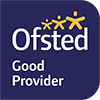To be the best that we can be.
To raise standards of achievement in all aspects of pupil development through the school.
To develop each child’s desire to achieve.
To develop and communicate an ethos of high expectation throughout the school community.
To provide a rich and varied learning environment, that allows children to develop their skills and abilities, working towards achieving their full potential.
To develop skills enabling children to deal with challenges and change.
To develop a child’s self confidence and feeling of self worth.
To provide children with a purpose and context for their learning.
To promote a caring and considerate attitude towards each other within the community.
To foster the tolerance of opinions and beliefs of others.
To engender social skills that enable children to work and communicate effectively with others.
To promote independence.
Fostering a caring and considerate environment where all children feel safe.
Providing good role models through the way that we interact with all adults and children, at all times, and in all places.
Developing classroom environments in which children feel valued, respected and safe.
Creating an environment where it is acceptable to make mistakes and be challenged by their learning.
Involving all pupils in the way the school is run, through class and school councils, in order to make them feel that their opinion is valued.
Providing exciting opportunities for learning, which enrich the curriculum and include after-school activities, visits and input from the wider community, including visiting speakers, arts performers and representatives from the sporting organisations.







































